The American elections explode into life with a resurgent Romney decimating a jaded Obama in a messy debate with fictitious facts and an unnecessary reverence for figures of the past.
The two Harvard educated presidential candidates had their first debate and Romney won. Obama started off without vim or vigor. He conceded too many points, rambled, stumbled, stuttered and finally concluded with an apologetic whimper that even made his fiercest supporters cringe. Romney was sharp, assertive and consistent. Obama looked tired, distracted and uninterested. It is too early to say what will happen in the election but unless Obama rediscovers his vigor, the Grand Old Party might have much to cheer about a candidate that it has selected but never really supported.
Debates are essential to democracy and it is to the credit of America that candidates are expected to have a clash of ideas before they assume office. From the earliest days of the Republic when Adams and Jefferson sparred through a series of letters to our times when Twitter reigns, America comes alive for presidential debates. Gone are the days of Lincoln-Douglas debates though. What we get is a television production where the ties, suits, body language, facial expressions and sound bites are almost more of a focus than the arguments. In fact, there is such little time to develop arguments that the focus is more on sound bites and zingers instead of an examination.
This was a messy debate lacking structure though Romney did a much better job of defining his arguments and buttressing them with supporting facts than Obama did. He stated his five point agenda to get America going again: energy independence, trade, education, balancing the budget and promoting small business. It was a succinct and clear laundry list of key issues that America cares about. Obama’s opening statement was tepid and said nothing but repeated his constant incantation of building the middle class.
It’s the Economy, Stupid, but also the Military!
At the heart of the debate was the economy. Both candidates offered two distinct visions. Romney kept claiming that America was a land of freedom and free enterprise, and that businesses needed to be unleashed to foster growth and create jobs. Obama agreed that the genius of America is best expressed through the free market system but did not make the case for greater government intervention and why exactly it was needed. He did not refute Romney’s arguments or counter his claims. The Washington Post points out that Romney asserted eight times that Obama plans to cut $716 billion from Medicare. Obama did not respond by pointing out that Romney’s running mate, Paul Ryan, proposed a budget with the same if not greater cuts. He did not address Romney’s claim about his administration giving clean energy $90 billion of breaks and backing losers like Solyndra and Tesla. More importantly, Romney was able to hark back to the Constitution to predicate his argument for a strong military. He painted Obama as a president who was cutting defense spending and making America weaker. This got neither a riposte nor a reference to Osama bin Laden’s execution from a president who has stuck to his predecessor’s policies, kept Guantanamo Bay detention camp open and ordered scores of drone strikes within Pakistan.
Awful Obama
Obama was diffident and defensive. The CNN-ORC flash poll found that 67% thought Romney had won the debate while only 25% thought that Obama was the victor. The challenge that Obama faces is defending his record. While it is true that he took over as president at a time when the economy was in the doldrums, he has an unenviable record in office. He came to power on a popular wave as an almost messianic candidate and it was inevitable that he would disappoint many of his supporters. However, he also came to power with a supermajority of 60 Democrats in the Senate and a Democrat majority in the House, which he squandered prodigally. He outsourced healthcare reform to the Congress that spent too long in deliberation, enabling the Tea Party to gain momentum and wreck his agenda. While Obama dilly dallied and failed to demonstrate leadership, Sarah Palin went on to make the preposterous “death panel” claim and stoke subliminal fears that healthcare would be rationed, controlled and denied. Ted Kennedy died most inconveniently and the Republicans were able to do the unthinkable – win the Senate seat in extremely Democratic Massachusetts, the fiefdom of the Kennedy clan. Against the advice of his craven and crass Chief-of-Staff, Rahm Emmanuel, Obama finally pushed through a half-hearted healthcare bill against an energized Republican opposition giving them something to rally around. The whole shenanigans would have been easily avoided if he had shown stronger leadership.
Obama opted for continuity in economic policy and appointed people with experience to key positions. He chose Tim Geithner to succeed Hank Paulson as Treasury Secretary. As President of Federal Reserve Bank of New York, Geithner played a significant role in the bailouts of Bear Stearns and AIG. Paulson and Geithner saved AIG a mere two days after allowing Lehman Brothers to go bankrupt. The key point here is that Obama persisted with the economic policies of his predecessor, George Bush. He did not have ideas that were markedly different and nor did he dare to employ fresh hands at the tiller. Merging the big banks was an expedient but not an efficient solution. It resulted in the “too big to fail” problem that was raised by Romney in the debate. The Dodd-Frank legislation drafted to regulate the financial sector is seen as excessively long, exasperatingly vague and unworkable. Besides, as Romney correctly pointed out it compounds the “too big to fail” problem by giving safety assurances to the big banks. In 2008, Obama ran as a transformational candidate. This year he is running as an incumbent who failed to bring about the change he promised and who seems to be a bit ashamed of his record.
The most preposterous example of the Obama capitulation was his defense of healthcare reform. Romney launched a ferocious attack on it and claimed that he would repeal it. This was a display of breathtaking hypocrisy by a man who had instituted healthcare reform himself in Massachusetts. In fact, Romneycare is clearly the blueprint for Obamacare but Obama did not point out any similarities and failed to draw blood on a point where Romney was at his weakest.
Dominant Romney
In contrast to Obama, Romney was disciplined, focused and relentless. He insisted on getting the last word on every point without coming across as brash or pushy. He was assertive without being aggressive, more prepared, more articulate, more animated and more presidential. He made a clear case that increased government spending, greater taxation and excessive regulation was sapping America in the opening statement itself. He pointed out that new businesses were at a thirty year low and promised to restore the vitality of America by backing small businesses. He said that people were hurting and he wanted to help. He claimed that his top priority was job creation and the “trickle down government” policies of Obama had failed.
Romney talked about 23 million out of work, a sixth of the population in poverty, the number of people on food stamps rising from 32 million to 47 million in the last four years and 50% of students graduating from college this year with no prospects for jobs. He categorically stated that there would be no $5 trillion tax cut and that the share of taxes paid by high-income people would not decrease. He refuted Obama’s claims on his tax plans and painted himself as a moderate pragmatic who just wanted to get Americans back to work. Romney was brilliant in coming up with the term, “the economy tax” that was hurting Americans by causing a fall in income of $4,300 for middle-income families, a $2,500 rise in healthcare costs per family, a doubling of gas prices, and a rise in electricity and food prices. Romney claimed that his five point agenda would solve these problems.
Romney also pointed out 47 training programs of the federal government reporting to eight different agencies had huge wasteful overheads and that this money would be better used by the states. They could instead put the money into the hands of workers who could then decide what training they needed instead of following directives of a bureaucratic federal government. He proclaimed that he was in favor of energy independence by boosting production of natural gas and oil through increasing permits, allowing drilling in Alaska and sanctioning the controversial pipeline from Canada. He promised to lower taxes for both corporations and people but take away deductions, credits and exemptions thereby generating the same money as before, particularly after taking growth into account. His claim to cut waste and stop nonessential expenditures was made unforgettable when he said that he would even cut the subsidy to Big Bird, the iconic protagonist of the long-running children's television show Sesame Street. He made a claim with much conviction that his number one principle was to have no tax cut that adds to the deficit.
Finally, it was his closing statement that really burnished his presidential credentials. He talked about his concern for America, the direction America has been taking over the last four years, the election being bigger than the candidates or their parties and the two paths on offer for the future. He asserted that Obama’s path would lead to a middle class squeeze with incomes going down and prices going up. He promised to get incomes up again, lower unemployment by creating twelve million new jobs with rising incomes, lower healthcare premiums by repealing Obamacare, allow each state to craft its own program to get people insured on the basis of the principles he established as Massachusetts’ Governor and cut costs of healthcare. He closed by promising to restore the $716 billion that he claimed Obama is cutting from Medicare. Finally, he promised to save the military, which he asserted would otherwise be decimated by the dramatic cuts that Obama is planning in his second term. He ended by saying that he would keep America strong and get America’s middle class working again. For an anxious America that yearns to rediscover its sense of manifest destiny, Romney established an emotional resonance with the electorate that had so far proved elusive.
The Shadow of History
America is a young country besotted with its past. It enshrines earlier eras in rose tinted hues and candidates are expected to pay homage to past leaders like scratched records. Romney came up with the mandatory Republican tribute to Reagan forgetting to add that the Gipper began the recent American penchant for deficits and his reign initiated increased inequality and lower social mobility in the country. Obama reminisced mistily about Clinton failing to mention that Bubba pioneered the financial deregulation that allowed an institution to act as an investment bank, a commercial bank, and an insurance company at the same time. Both Reagan and Clinton are overrated presidents. Both were lucky to be in power in benign times and both rode the tide of their times with aplomb. Neither of them demonstrated vision nor did they make particularly tough decisions. In the second half of the 20th century, disreputable presidents like Nixon and Johnson achieved far more than the Teflon President or Slick Willie. The former took America to China while the latter ended segregation in the Deep South, massive achievements in comparison with the Reagan tax reform and the Clinton welfare reform. Yet, Reagan and Clinton have become deities for their respective parties because they evoke memories of good times for average Americans.
An issue that was not discussed in detail was that of states’ rights. Romney claimed that healthcare is best left to the states while Obama insists on Washington DC spelling out policies. The debate about states’ rights has been continuing since the founding of the Republic. Figures such as Alexander Hamilton, Thomas Jefferson, James Madison and John Adams have all weighed in. There are good arguments on both sides. Romney’s position that states are best placed to solve their problems has real merit; it allows for fifty different experiments in democracy in America and, in part, explains the dynamism and ingenuity of the country. Obama’s position that federal government has a major role to play is valid too. It allows for national projects such as the Interstate Highway system and allows America to be a more cohesive nation. The jury is still out as to what model would work better but there needs to be an honest argument beyond the contrived posturing in television debates for people to make informed choices.
Facts are Important but you can Make Them up
Both sides bandied facts to buttress their arguments. Both made claims what were clearly untrue. Obama claimed that America makes the best cars in the world while Romney claimed that his tax plan was unprecedented, conveniently forgetting the achievements of Reagan, his purported idol. Obama claimed that health care premiums have “gone up slower than any time in the last 50 years” while Romney claimed that a new board established under Obamacare will “tell people ultimately what kind of treatments they can have.”
The bottom line is that making up facts is common practice in all debates. Romney was clever in telling Obama that he was not entitled to his facts and repeatedly pointing out when Obama was wrong on the facts. Obama was idiotic enough not to engage in rebuttal so Romney’s fictitious facts held up far more than Obama’s.
What Really Matters is Personality
At the end of the day, what matters is personality. Americans have a presidential system, which means they vote for a candidate and not for a party. One candidate is an aloof and ashamed president who is unable and perhaps unwilling to defend his record. Obama clearly does not have a record that matches his rhetoric and even his rhetoric seems to have deserted him. The other candidate is a flip flopper who changes his stance to suit the wind. Romney opposed abortion, then supported it and now opposes it again, and this is just one of the multiple issues on which he has tailored his position to suit popular opinion.
Debates are occasions for candidates to look, sound and act Presidential. Candidates have to emanate energy, personify a vision and convey conviction. They have to be in the moment. James Fallows, an eminent American journalist, commented on the debate “without seeing anyone else's liveblog, or Twitter feed, or TV commentary.” He observed that Romney looked much more at ease than Obama and Fallows is a Democrat.
To win office, a candidate has to show he is hungry and demonstrate the will to rule. Romney did that and won round one. He now has a real shot at the other big bird, Air Force One.
Support Fair Observer
We rely on your support for our independence, diversity and quality.
For more than 10 years, Fair Observer has been free, fair and independent. No billionaire owns us, no advertisers control us. We are a reader-supported nonprofit. Unlike many other publications, we keep our content free for readers regardless of where they live or whether they can afford to pay. We have no paywalls and no ads.
In the post-truth era of fake news, echo chambers and filter bubbles, we publish a plurality of perspectives from around the world. Anyone can publish with us, but everyone goes through a rigorous editorial process. So, you get fact-checked, well-reasoned content instead of noise.
We publish 2,500+ voices from 90+ countries. We also conduct education and training programs
on subjects ranging from digital media and journalism to writing and critical thinking. This
doesn’t come cheap. Servers, editors, trainers and web developers cost
money.
Please consider supporting us on a regular basis as a recurring donor or a
sustaining member.
Will you support FO’s journalism?
We rely on your support for our independence, diversity and quality.


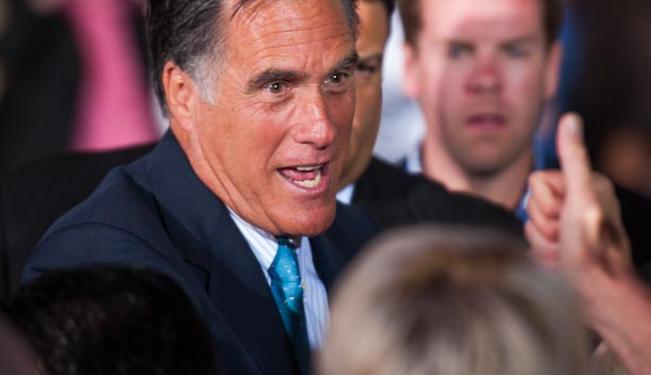

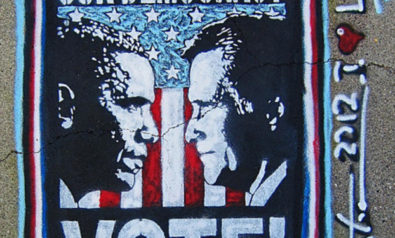
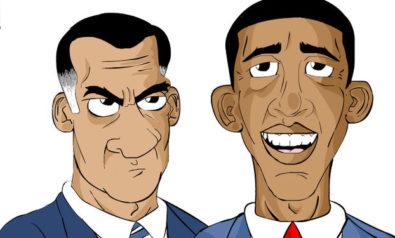
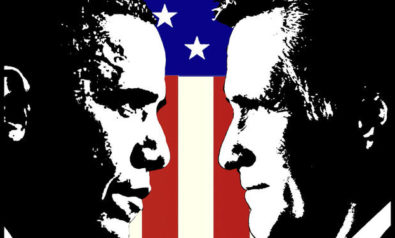
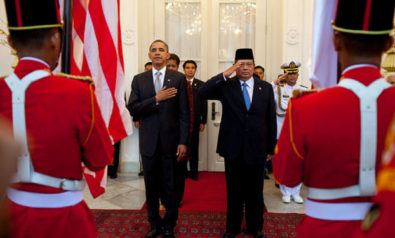



Comment